Nifty 50 rose 230 points to 22,327 and BSE Sensex rose 819 points to 73,651: Markets ended the week ended March 28 on a strong note with the benchmark index up 1%, with most sectors apart from IT participating after a consolidation in previous weeks. In fact, the March derivatives contract's monthly expiry saw a nice rally, suggesting the market may soon be heading towards new all-time highs. The Nifty 50 rose 230 points to 22,327 and the BSE Sensex rose 819 points to 73,651 while the broader markets outperformed their benchmarks this week with the Nifty Midcap 100 and Smallcap 100 gaining 1.6% and 1.4% respectively. Meanwhile, market performance in FY 2023-24 has been quite strong with Nifty 50 index surging 28.6%, Nifty Midcap 100 index up 60% and small cap index up 70%. The first week ahead of the new fiscal year FY25 is expected to be favorable for the market, with focus on auto sales data, manufacturing and services PMI data, RBI interest rate decision and expectations for March FY24 quarterly earnings. The CPI inflation rate in February fell to 5.09% from 5.10% in the previous month, and the core inflation rate (excluding food and fuel inflation) further fell to 3.3% from 3.6% in the same month. Globally next week, market participants will focus on a speech by Federal Reserve Chairman Jerome Powell scheduled for April 3. source: et
India's anti-dumping policy: Safeguarding industries or stifling growth? Section of industry says it is time to look at the country's anti-dumping strategy with a fresh lens. The duties sometimes favour large firms and severely impact MSMEs, choking industrial growth. India's anti-dumping duties are not fulfilling their stated goal of safeguarding the domestic industry, but are throttling the growth of various businesses, say industry stakeholders. Moreover, these trade barriers are being applied in segments that have growth potential, they say, demanding a holistic review of policy. Such steep duties burden small firms and traders in downstream manufacturing value chains of multiple industries, as they claim that these duties were reportedly imposed without seeking their input. Shridhar Uppin, founder & CEO of Belgaum- based engineering company Positron, which makes heat exchangers, says his business has been affected by the ADD. Uppin says a Gujarat-based company has a monopoly in LMWCMs and these are expensive machines, putting them out of reach of small businesses. "The Chinese LMWCMs are not only cost- effective but are far better in quality, too. These (ADD) moves put our goal of making world- class products on Indian soil on shaky grounds," says Uppin, a member of the Karnataka Small-Scale Industries Association (KASSIA). India tops the list of developing countries using anti-dumping measures. The world's fifth-largest economy has filed roughly 20% of all global antidumping cases, disproportionate to its share of global imports of 2%, studies show. According to the Ministry of Commerce, the major sectors in which India has imposed anti-dumping measures are chemicals & petrochemical products (42% of all ADDs); glass and glassware (14%); rubber or plastic products (12%); textiles and articles (9%); steel or other metal products (7%) and other consumer goods (16% of all ADDs). They use the example of the chemical sector, where India is the 6th largest producer; it contributes 7% to India's GDP. A big problem is China dumping isopropyl alcohol (IPA), used as a cleaning solvent in pharmaceuticals, chemicals, paints & coatings, and cosmetics, among others. Industry observers say the domestic industry has to pay high duties to import IPA, and use these to manufacture and export products. Satish Wagh, vice-chairman at industry body Chemexcil, says one company and its subsidiary - Deepak Fertilisers and Deepak Nitrite overwhelmingly controlled this segment. According to a recent report by ChemAnalyst (a platform monitoring chemical and petrochemical data), these companies have capacities of about 140-145 million tonnes (mt). But India's approximate consumption is around 210 mt, says Wagh, who is also the CMD of Supriya Life Sciences. Based on the recommendation of domestic IPA manufacturers, certain quantity restrictions were imposed on IPA imports. This, Wagh points, inflated the prices of the input to Rs 150 a kg from Rs 50-70 a kg. The prices are expected to go up further. source:et
प्राकृतिक गैस क्षेत्र के 4 स्टॉक विपरीत व्यापार के लिए: स्टॉक काफी समय से बाजार से कमतर प्रदर्शन कर रहे हैं। उनके खिलाफ तर्क कई गुना बढ़ गए हैं, वॉल्यूम ग्रोथ के मामले में स्थिरता से लेकर, कंपनियों द्वारा नए क्षेत्रों में विस्तार न कर पाना और सबसे हालिया ईवी से खतरा। कुछ महीने पहले, दिल्ली में इलेक्ट्रिक वाहन (ईवी) को और अधिक आक्रामक तरीके से बढ़ावा देने की घोषणा ने आईजीएल जैसे स्टॉक पर दबाव डाला, लेकिन इसमें कोई संदेह नहीं है कि समय के साथ ईवी हावी हो जाएगा, क्या इसका मतलब यह है कि व्यवसाय का अंत हो गया है। यह कुछ लोगों को अजीब लग सकता है, लेकिन यह दिखाने के लिए पर्याप्त सबूत हैं कि जब बाजार पर बुल्स का नियंत्रण होता है, तो कुछ सेक्टर नजरअंदाज हो जाते हैं। आम तौर पर ऐसे सेक्टर होते हैं जहां बुल्स को लगता है कि व्यवसाय में वृद्धि बहुत अधिक नहीं होगी। इसलिए ऐसे दौर भी आए हैं जब FMCG जैसे सेक्टर ने कमतर प्रदर्शन किया है। सबसे हालिया उदाहरण HUL का है। लेकिन सिटी गैस डिस्ट्रीब्यूशन कंपनियों के मामले में, कुछ वास्तविक बाधाएं हैं। सबसे बड़ा खतरा ईवी का है, क्योंकि सीएनजी वाहन की मांग बढ़ने की उम्मीद है। स्टॉक रिपोर्ट प्लस की 29 मार्च, 2024 की नवीनतम रिपोर्ट के आंकड़ों के आधार पर स्टॉक संकलित किए गए हैं। सूची में एक वर्ष के लिए प्रत्येक स्टॉक का मूल्यांकन करने वाले विश्लेषकों की संख्या भी शामिल है। गैस यूटिलिटी स्टॉक - अपसाइड पोटेंशियल मार्च 29, 2024 कंपनी का नाम IGL नवीनतम औसत स्कोर 10 रेको खरीदें विश्लेषक गणना 31 अपसाइड पोटेंशियल% 8.2 इंस्ट स्टेक % 30.1 मार्केट कैप टाइप बड़ा 3M रिटर्न % 4.1 मार्केट कैप करोड़ रुपये 30,167 कंपनी का नाम GSPL नवीनतम औसत स्कोर 10 रेको खरीदें विश्लेषक गणना 23 अपसाइड पोटेंशियल% 7.2 इंस्ट स्टेक% 32.8 मार्केट कैप टाइप मध्य 3M रिटर्न % 15.5 मार्केट कैप करोड़ रुपये 20,097 कंपनी का नाम MGL नवीनतम औसत स्कोर 10 रेको खरीदें विश्लेषक गणना 29 अपसाइड संभावित % 1.9 इंस्ट स्टेक % 37.0 मार्केट कैप टाइप मिड 3M रिटर्न % 13.9 मार्केट कैप करोड़ रुपये 13,468 कंपनी का नाम गुजरात गैस नवीनतम औसत स्कोर 8 रेको होल्ड विश्लेषक गणना 27 अपसाइड संभावित % -4.6 इंस्ट स्टेक % 16.3 मार्केट कैप टाइप बड़ा 3M रिटर्न % 20.4 मार्केट कैप करोड़ रुपये 37,466 source:et
निफ्टी वित्तीय सेवा सूचकांक स्टॉक: क्या प्रतिकूल परिस्थितियाँ कम हो रही हैं? पिछले तीन वर्षों में, वित्तीय सेवा के विभिन्न क्षेत्रों में बहुत अलग-अलग रुझान देखे गए हैं। व्यवसाय के संदर्भ में नहीं बल्कि प्रतिकूल परिस्थितियों या अनुकूल परिस्थितियों के संदर्भ में। जहाँ बड़े निजी बैंक स्थिर हो गए हैं, वहीं कुछ छोटे निजी क्षेत्र फिर से चर्चा में आ गए हैं। पीएसयू बैंकों ने एक समूह के रूप में वापसी की है, बीमा कंपनियाँ अभी भी दिशा की तलाश कर रही हैं, परिसंपत्ति प्रबंधन कंपनियाँ अपनी स्थिति को वापस पाने में सफल रही हैं, जबकि एनबीएफसी विनियामक के लिए उच्च प्रावधानों के संदर्भ में नई चुनौतियों का सामना कर रही हैं। इसलिए प्रत्येक का स्वामित्व संभवतः यह निर्धारित करता है कि प्रतिकूल परिस्थितियाँ कब आती हैं या अनुकूल परिस्थितियाँ कब आती हैं। लेकिन जो बात समान है वह यह है कि इनमें से अधिकांश में उच्च एफपीआई होल्डिंग है। अब एफपीआई भारतीय बाजारों में बड़े पैमाने पर विक्रेता रहे हैं, कभी-कभी उन्होंने थोड़े समय के लिए वापसी की है। इस समय, वे न तो बड़े खरीदार हैं और न ही विक्रेता, लेकिन यह संतुलन बदल जाएगा। जब ऐसा होगा, तो यह 20 स्टॉक का समूह होगा जो संकेत देगा कि किस सेगमेंट के लिए हवा किस दिशा में बह रही है। निजी बैंकों सहित वित्तीय सेवाएँ एक ऐसा क्षेत्र है जो बाजार को दोनों दिशाओं में आगे बढ़ाता है। चाहे वह ऊपर की ओर हो या नीचे की ओर। इसका कारण, इनमें से अधिकांश शेयरों में विदेशी पोर्टफोलियो निवेशकों (FPI) का उच्च स्वामित्व है। काफी समय से निजी बैंकों ने सूचकांक को दबाव में रखा है। पिछले कुछ हफ़्तों के सुधार में, ये शेयर एक स्थिर कारक के रूप में अधिक रहे हैं क्योंकि वे सीमाबद्ध रूप से आगे बढ़े हैं। लेकिन वैश्विक स्तर पर कुछ ऐसे घटनाक्रम हो रहे हैं जो उभरते बाजारों में प्रवाह को प्रभावित कर सकते हैं और यदि ऐसा होता है, तो इन शेयरों में दिशात्मक बदलाव का एक और दौर देखने को मिल सकता है। यूएस फेड स्पष्ट रूप से संकेत दे रहा है कि मुद्रास्फीति कम हो सकती है लेकिन समाप्त नहीं हो सकती है, इसलिए उम्मीद है कि ब्याज दरों में कटौती में कुछ और समय लग सकता है। दूसरी ओर, चीन ने दरों में कटौती की है, जो मौद्रिक नीति उपकरणों के माध्यम से अपनी अर्थव्यवस्था को बढ़ावा देने की उसकी इच्छा को दर्शाता है। 17 वर्षों के अंतराल के बाद, बैंक ऑफ जापान ने ब्याज दरों के मामले में सुई को आगे बढ़ाया है। source: et
5 धातु स्टॉक जिनमें 23% तक की उछाल की संभावना है: कुछ दिन पहले, तेल की कीमतों में अचानक उछाल आया था, हालांकि वे थोड़े शांत हो सकते थे। सवाल यह है कि यह अचानक उछाल क्यों आया, जबकि मध्य पूर्व में कोई तनाव नहीं बढ़ा है और यह पीक सीजन भी नहीं है, जब हीटिंग ऑयल की मांग अचानक बढ़ सकती थी। अब इसे तांबे जैसी कुछ गैर-लौह धातुओं की कीमतों के रुझान के साथ जोड़ दें, जो एक साल के उच्चतम स्तर पर पहुंच गई हैं। हालांकि कुछ लोगों को यह इस समय दूर की कौड़ी लग सकता है क्योंकि कई गलत शुरुआत हुई हैं, क्या कमोडिटी बाजार यह संकेत दे रहे हैं कि आखिरकार चीनी अर्थव्यवस्था में कुछ हरियाली दिख रही है? जोखिम अमेरिकी चुनाव परिणाम है। क्या चुनाव परिणाम व्यापार मुद्दे को हल करने में मदद करेंगे या मुद्दों को जारी रखेंगे? सच यह है कि चीन अपनी अर्थव्यवस्था को पटरी पर लाने के लिए एक के बाद एक प्रयास कर रहा है और उसे तत्काल सफलता नहीं मिली है। पिछले एक साल में कई गलत शुरुआत हुई हैं। लेकिन फिर एक और तथ्य है: पिछले दो दशकों में चीनी अर्थव्यवस्था ने कई मुद्दों का सामना किया है, कर्ज से लेकर जीडीपी की चिंता, छाया बैंकिंग से लेकर संपत्ति संकट तक। इस रिपोर्ट के उद्देश्य से, हमने ऐसे स्टॉक चुने हैं जिनमें विश्लेषकों की संख्या कम से कम 9 है और औसत स्टॉक रिपोर्ट स्कोर कम से कम 7 है। फिर सूची को सबसे ऊपर आने वाले सबसे संभावित स्टॉक के साथ क्रमबद्ध किया गया है। धातु स्टॉक - ऊपर की ओर संभावित 30 मार्च, 2024 कंपनी का नाम हिंडाल्को इंडस्ट्रीज नवीनतम औसत स्कोर 8 सिफारिश खरीदें विश्लेषक गणना 25 ऊपर की ओर संभावित% 23.7 इंस्ट स्टेक % 43.4 1 सप्ताह का रिटर्न% 3.8 1 मिलियन का रिटर्न% 11.1 मार्केट कैप करोड़ रुपये 125.945 कंपनी का नाम जिंदल स्टील एंड पावर नवीनतम औसत स्कोर 9 सिफारिश खरीदें विश्लेषक गणना 24 + ऊपर की ओर संभावित% 21.3 इंस्ट स्टेक % 20.2 1 सप्ताह का रिटर्न % 3.4 1 मिलियन का रिटर्न % 12.4 मार्केट कैप करोड़ रुपये करोड़ 86,651 कंपनी का नाम JSW स्टील नवीनतम औसत स्कोर 9 रेको होल्ड विश्लेषक गणना 27 अपसाइड संभावित% 20.5 इंस्ट स्टेक% 16.5 1 सप्ताह का रिटर्न% 2.2 1 मिलियन का रिटर्न% 4.0 मार्केट कैप करोड़ रुपये 203,303 कंपनी का नाम टाटा स्टील नवीनतम औसत स्कोर 7 रेको होल्ड विश्लेषक गणना 27 अपसाइड संभावित% 17.4 इंस्ट स्टेक% 30.8 1 सप्ताह का रिटर्न% 3.8 1 मिलियन का रिटर्न% 10.7 मार्केट कैप करोड़ रुपये 194,618 कंपनी का नाम नेशनल एल्युमिनियम कंपनी नवीनतम औसत स्कोर 7 रेको होल्ड विश्लेषक गणना 9 अपसाइड संभावित% 16.0 इंस्ट स्टेक% 22.3 1 सप्ताह का रिटर्न% 4.7 1 मिलियन का रिटर्न% 0.2 मार्केट कैप करोड़ रुपये 27,999 विश्लेषकों द्वारा दिए गए उच्चतम मूल्य लक्ष्य से गणना की गई source: et
स्टॉक पिक्स: लगातार स्कोर में सुधार और 38% तक की अपसाइड क्षमता वाले 4 स्टॉक: मार्च के पहले तीन हफ़्तों तक दबाव में रहने के बाद, वित्त वर्ष 24 के आखिरी दो कारोबारी सत्रों में कम से कम व्यापक बाजार सूचकांकों में कुछ सुधार हुआ। इसे सुधार कहना शायद जल्दबाजी होगी, क्योंकि अगर कोई बाजार की चौड़ाई को देखे, तो यह सकारात्मक था, लेकिन कारोबार के आखिरी एक घंटे में जिस तरह से इसमें गिरावट आई, उससे पता चलता है कि बाजार का एक हिस्सा अभी भी मुनाफावसूली देख रहा है। इसलिए, ऐसे समय में बाजार के अलग-अलग कोनों में बुल्स के वापस आने के बारे में अधिक पुष्टि प्राप्त करना सार्थक होगा, ऐसे स्टॉक के साथ बने रहना बेहतर होगा, जिनके स्कोर में किसी न किसी कारण से सुधार हुआ है। ये चयनित स्टॉक अपने समग्र औसत स्कोर में एक मजबूत ऊपर की ओर प्रक्षेपवक्र दर्शाते हैं जो आय, बुनियादी बातों, सापेक्ष मूल्यांकन, जोखिम और मूल्य गति के पांच प्रमुख स्तंभों पर आधारित है। इसका मतलब है कि दिए गए समय सीमा में उनके बाजार दृष्टिकोण में उल्लेखनीय सुधार हुआ है। कुछ सप्ताह पहले तक बाजार में इस बात को लेकर चर्चा थी कि निफ्टी का प्रदर्शन खराब रहा है, लेकिन पिछले एक महीने में निफ्टी में गिरावट आई है, लेकिन इस तथ्य को देखते हुए कि मध्यम और छोटे सूचकांकों में अधिक गिरावट आई है, निफ्टी स्पष्ट रूप से बेहतर स्थिति में है। इस बात की हमेशा संभावना रहती है कि हम ऐसा और भी होते देखें। एक निवेशक के रूप में, किसी कंपनी के कामकाज में कथात्मक और वास्तविक बदलाव के बीच अंतर करने में सावधान रहें। इसलिए यदि आय में सुधार की संभावना है तो आप तेजी से आगे बढ़ सकते हैं और कुछ हद तक तब भी खरीद सकते हैं जब मूल्यांकन अधिक हो। उदाहरण के लिए, फार्मा क्षेत्र में, ऐसी कई कंपनियां हैं जो अपने विस्तार या पिछड़े एकीकरण परियोजना को पूरा करने के कगार पर हैं और इससे उनके मार्जिन को बढ़ाने में मदद मिलेगी। इसी तरह, जिन कंपनियों के लिए तेल या तेल डेरिवेटिव एक महत्वपूर्ण कच्चा माल हैं, उनके प्रदर्शन में कुछ तनाव होना तय है क्योंकि कीमतें ऊपर की ओर बनी हुई हैं। इसलिए, सीमेंट, तेल रिफाइनिंग की कंपनियों के प्रदर्शन में कुछ दबाव दिखने की अधिक संभावना है क्योंकि कीमतें इन उद्योगों में महत्वपूर्ण भूमिका निभाती हैं और वे ऊपर की ओर बढ़ रही हैं। नीचे दिए गए 4 स्टॉक की स्क्रीनिंग में इस्तेमाल किया गया डेटा 30 मार्च, 2024 की नवीनतम रिफाइनिटिव की स्टॉक रिपोर्ट प्लस रिपोर्ट से एकत्र किया गया है। लगातार स्कोर सुधार वाले स्टॉक 30 मार्च, 2024 कंपनी का नाम वैरोक इंजीनियरिंग नवीनतम स्टॉक स्कोर 8 स्टॉक स्कोर 1W पहले 7 स्टॉक स्कोर 1M पहले 6 रेको होल्ड विश्लेषक गणना 6 अपसाइड संभावित (%) 38.9 इंस्ट स्टेक (%) 15.6 मार्केट कैप टाइप मिड मार्केट कैप करोड़ रुपये 7,661 कंपनी का नाम बजाज कंज्यूमर केयर नवीनतम स्टॉक स्कोर 8 स्टॉक स्कोर 1W पहले 7 स्टॉक स्कोर 1M पहले 6 रेको मजबूत खरीद विश्लेषक गणना 10 अपसाइड संभावित (%) 32.0 इंस्ट स्टेक (%) 25.5 मार्केट कैप टाइप स्मॉल मार्केट कैप करोड़ रुपये 3,025 कंपनी का नाम अनुपम रसायन इंडिया नवीनतम स्टॉक स्कोर 7 स्टॉक स्कोर 1W पहले 6 स्टॉक स्कोर 1M पहले 5 रेको होल्ड विश्लेषक गणना 9 अपसाइड संभावित (%) 24.1 इंस्ट स्टेक (%) 8.9 मार्केट कैप टाइप मिड मार्केट कैप करोड़ रुपये 9,539 कंपनी का नाम मोल्ड-टेक टेक्नोलॉजीज नवीनतम स्टॉक स्कोर 8 स्टॉक स्कोर 1W पहले 7 स्टॉक स्कोर 1M पहले 6 रेको विश्लेषक गणना अपसाइड संभावित (%) इंस्ट स्टेक (%) 0.0 मार्केट कैप टाइप छोटा 515 मार्केट कैप रुपये करोड़ *विश्लेषकों द्वारा दिए गए उच्चतम मूल्य लक्ष्य से गणना की गई source:et
महामारी के बाद के दौर में उपयोगकर्ताओं ने ड्रॉप-इन सोशल-ऑडियो प्लेटफ़ॉर्म क्यों छोड़ा: कोविड-19 के दौरान क्लबहाउस एक सनसनी बन गया था, और कई सिलिकॉन वैली विशेषज्ञ उम्मीद कर रहे थे कि यह अगला सोशल-मीडिया स्टार होगा। लेकिन महामारी के बाद की दुनिया में डाउनलोड में गिरावट के साथ, प्लेटफ़ॉर्म खुद को फिर से स्थापित करने के लिए संघर्ष कर रहा है। जब थॉमस जकारिया ने 2021 में क्लबहाउस पर अपने पहले कमरे का नाम टाइप किया, तो यादें उनके दिमाग में कौंध गईं। कई साल पहले दुबई में गर्मियों की दोपहर जब उन्होंने एक स्थानीय चैनल पर रेडियो जॉकी (आरजे) को सुना था, तब वह अभी भी उनके दिमाग में ताज़ा थी। उस समय ग्यारहवीं कक्षा के छात्र, जकारिया, जो केरल के मावेलिककारा में सुरम्य बैकवाटर के किनारे अपने गृहनगर से करीब 3,000 मील दूर थे, ने आरजे बनने का मन बना लिया था। लेकिन एक मध्यमवर्गीय भारतीय परिवार में पले-बढ़े किशोर के रूप में, आप आरजे बनने का सपना नहीं देखते हैं। इसके बजाय, आप इंजीनियरिंग पूरी करते हैं और एक आईटी कंपनी में शामिल होते हैं। और जैसे-जैसे ज़िम्मेदारी उनके कंधों पर बोझ बनने लगी, ज़ाचरियाह इसे भूल गए। "मैंने उस सपने को बहुत पहले ही दफना दिया था। लेकिन क्लबहाउस के साथ, वे सभी यादें वापस आ गईं," ज़ाचरियाह याद करते हैं, जो वर्तमान में केरल स्थित आईटी सेवा फर्म आबासॉफ्ट के कार्यकारी निदेशक हैं, वे उस समय का जिक्र करते हैं जब उन्होंने इस प्लेटफ़ॉर्म पर आम लोगों की सफलता की कहानियों के माध्यम से दूसरों को प्रेरित किया। अगर ड्रॉप-इन सोशल ऑडियो-प्लेटफ़ॉर्म ने ज़ाचरियाह जैसे लोगों के लंबे समय से भूले हुए सपनों को पंख दिए, तो यह महामारी के वर्षों के दौरान अमेरिकी निवासी राज जैसे कई लोगों के लिए विवेक का रक्षक बन गया। कैलिफ़ोर्निया स्थित एक सोशल-मीडिया प्लेटफ़ॉर्म के 43 वर्षीय उत्पाद प्रबंधक, जो अपने पहले नाम से जाना जाना पसंद करते हैं, याद करते हैं कि कोविड-19 की दूसरी लहर के बीच लॉकडाउन के दौरान वे "चिंतित, थके हुए और सामाजिक संपर्क के लिए तरस रहे थे"। मार्च 2020 में एक ड्रॉप-इन और केवल आमंत्रण वाले सोशल-ऑडियो प्लेटफ़ॉर्म के रूप में स्थापित, जहाँ लोग लाइव बातचीत सुन सकते हैं या उसमें भाग ले सकते हैं या नई बातचीत शुरू कर सकते हैं, क्लबहाउस कई लोगों के लिए शरणस्थली था, जो महामारी के दौरान अपने घरों तक ही सीमित थे। मार्क जुकरबर्ग और एलोन मस्क सहित सिलिकॉन वैली के पोस्टर बॉयज़ की मौजूदगी ने इस प्लेटफ़ॉर्म के आकर्षण को और बढ़ा दिया- इतना कि इसकी लोकप्रियता मेटा (पूर्व में फ़ेसबुक), स्पॉटिफ़ाई, एक्स जैसी तकनीकी कंपनियों में देखी गई। चेन्नई के संगीतकार आदर्श (बदला हुआ नाम), क्लबहाउस पर सबसे लोकप्रिय संगीत चैनलों में से एक चला रहे थे। जकारिया और चार अन्य होस्ट के साथ, आदर्श जुलाई 2021 में क्रिएटर्स का समर्थन और प्रोत्साहन करने के लिए शुरू किए गए क्लबहाउस के क्रिएटर फ़र्स्ट प्रोग्राम का हिस्सा थे। इन कमरों का चयन उनकी सामग्री की गुणवत्ता, जुड़ाव और उपयोगकर्ता की भागीदारी सहित कई मापदंडों के आधार पर किया गया था। बेहतर प्रदर्शन के अलावा, उन्हें सामग्री पोस्ट करने के लिए USD5,000-USD15,000 का वादा किया गया था, साथ ही ब्रांडों या पेड रूम के विज्ञापनों के माध्यम से मुद्रीकरण की संभावना भी थी। हालांकि मुआवज़ा अपने आप में पर्याप्त आकर्षक नहीं था, लेकिन क्रिएटर्स का कहना है कि क्लबहाउस अन्य वादों को पूरा करने में विफल रहा। source:et
पैसे खोने से बचने के लिए डैनियल काहनेमन के इन 6 सिद्धांतों का उपयोग करें: थिंकिंग, फास्ट एंड स्लो के लेखक डैनियल काहनेमन ने हमारी सोच की भ्रांतियों को हमारे सामने उजागर किया। हम उनके कुछ सिद्धांतों को रेखांकित करके उन्हें श्रद्धांजलि देते हैं जो निवेशकों को मौद्रिक नुकसान को रोकने में मदद कर सकते हैं। ग्रह पर सभी प्रजातियों में से, मनुष्य यकीनन सबसे अच्छी संज्ञानात्मक क्षमताओं वाला प्राणी है। विकास हमें जो देता है, जीवन हमारे अच्छे निर्णय लेने की क्षमता का परीक्षण करता है और कभी-कभी गंभीर रूप से भी। डैनियल काहनेमन, जिनका बुधवार (27 मार्च) को 90 वर्ष की आयु में निधन हो गया, ने हमें बताया कि अच्छे निर्णय लेने की हमारी क्षमता उतनी आसान नहीं है जितनी दिखती है। हम उन निर्णयों के लिए अंतर्ज्ञान पर बहुत अधिक निर्भर करते हैं जिनके लिए गहन और विश्लेषणात्मक सोच की आवश्यकता होती है। वित्तीय निर्णय लेते समय यह कहीं और अधिक स्पष्ट होता है। काहनेमन द्वारा बताई गई छह गलतियाँ निवेशकों को, विशेष रूप से भारतीय बाजार में, बड़े धन हानि से बचने में मदद कर सकती हैं। आइए "हेलो इफ़ेक्ट" से शुरू करते हैं, या किसी व्यक्ति/प्रबंधन के बारे में हर उस चीज़ को पसंद करने की प्रवृत्ति जिसके प्रति निवेशकों का लगाव होता है एशियन पेंट्स एक ऐसी कंपनी है जो फंड मैनेजरों की पसंदीदा रही है जो "गुणवत्ता" को अपना सबसे बड़ा पैरामीटर मानते हैं। ये ऐसी कंपनियाँ हैं जिनका मूल्य-से-आय (पीई) अनुपात उच्च है, लेकिन उन्होंने एक 'हेलो इफ़ेक्ट' बनाया है, जो मूल रूप से बताता है कि उनके मूल्यांकन के बावजूद, ये कंपनियाँ उच्च रिटर्न देना जारी रखेंगी। पिछले एक साल में, कंपनी के शेयर की कीमत निफ्टी 50 के 30% लाभ के मुकाबले केवल 2% बढ़ी है। पाँच साल के आधार पर भी, कंपनी एक अंडरपरफॉर्मर है, जबकि निफ्टी 50 92% ऊपर है और एशियन पेंट 90% बढ़ा है, कंपनी का FY22 में PE अनुपात 98x था, जो अब लगभग 50x पर आ गया है। जैसे-जैसे मूल्यांकन गिरता है, 'हेलो इफ़ेक्ट' गायब हो जाएगा, लेकिन उस दौरान निवेशकों को भारी अवसर लागत का सामना करना पड़ेगा। लेकिन ऐसे फंड मैनेजर भी हैं जो स्टॉक पर बहुत ज़्यादा निवेश कर रहे हैं और उनका मानना है कि अंततः प्रीमियम क्वालिटी (हेलो इफ़ेक्ट) वापस आ जाएगी। छोटी संख्याओं का नियम, या बहुत सीमित डेटा या नमूने के विश्लेषण से किसी स्टॉक के बारे में बड़े सामान्य निष्कर्ष पर पहुँचना एक आम धारणा है कि छोटी कंपनियाँ अपने स्टॉक मूल्यों के मामले में कैप की तुलना में ज़्यादा रिटर्न देती हैं। लेकिन सच्चाई यह है कि छोटी-कैप कंपनियाँ भी बहुत कम रिटर्न देती हैं। चूँकि हम छोटी और मध्यम-कैप कंपनियों के एक छोटे से नमूने को देखते हैं जिन्होंने आम तौर पर शेयर बाज़ार में अच्छा प्रदर्शन किया है, इसलिए आम धारणा यह है कि कोई भी हारने वाला नहीं है। वास्तव में, ऐसी कंपनियों की संख्या भी बराबर है जिन्होंने कम प्रदर्शन किया है, लेकिन हमने इस क्षेत्र में केवल विजेताओं को देखा, जिनकी संख्या सीमित थी। source: et
4 stocks from the natural gas sector for contrarian trade: Stocks have been underperforming the market for quite some time. The argument against them has en multifold, right from stagnation in terms of volume growth, companies not being able to expand in newer areas and the latest one being the threat from EV. Couple of months back, an announcement ut pushing the electric vehicle (EV) more aggressively in Delhi, brought pressure on the stocks like IGL mile there is no doubt that over a period of time, EV will dominate, does it mean the end of the business. It might sound strange to some but there is enough evidence to show that when bulls are in control of the market, some sectors get ignored. Typically sectors where bulls feel that growth in business will not be very high. So there have been periods when sectors like FMCG have underperformed. The most recent example is that of HUL. But in the case of city gas distribution companies, there are some real headwinds. The biggest being the threat of the EV, as it is expected that the demand for the CNG vehicle. The stocks collated with data from the latest Stock Reports Plus report dated Mar 29, 2024. The list also contains a count of analysts evaluating each stock for the one year. Gas Utility stocks - Upside potential Mar 29, 2024 Company Name IGL Latest Avg Score 10 Reco Buy Analyst Count 31 Upside Potential% 8.2 Inst Stake % 30.1 Market Cap Type Large 3M Returns % 4.1 Market Cap Rs Cr 30,167 Company Name GSPL Latest Avg Score 10 Reco Buy Analyst Count 23 Upside Potential % 7.2 Inst Stake% 32.8 Market Cap Type Mid 3M Returns % 15.5 Market Cap Rs Cr 20,097 Company Name MGL Latest Avg Score 10 Reco Buy Analyst Count 29 Upside Potential % 1.9 Inst Stake % 37.0 Market Cap Type Mid 3M Returns % 13.9 Market Cap Rs Cr 13,468 Company Name Gujarat Gas Latest Avg Score 8 Reco Hold Analyst Count 27 Upside Potential% -4.6 Inst Stake % 16.3 Market Cap Type Large 3M Returns % 20.4 Market Cap Rs Cr 37,466 source:et

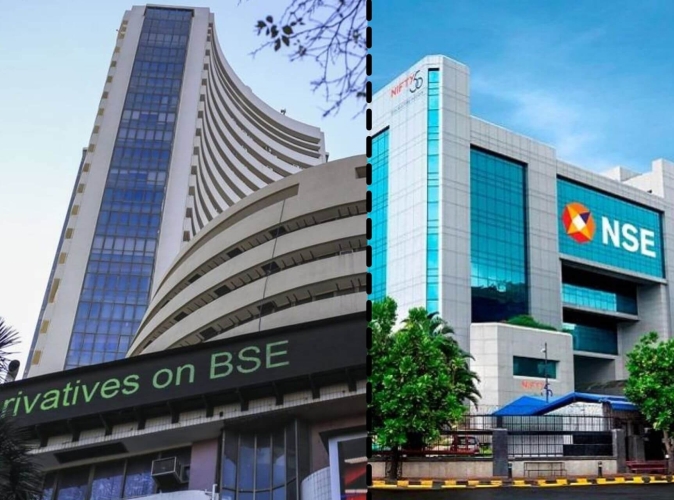


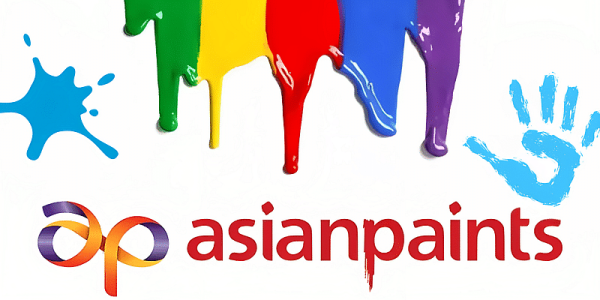
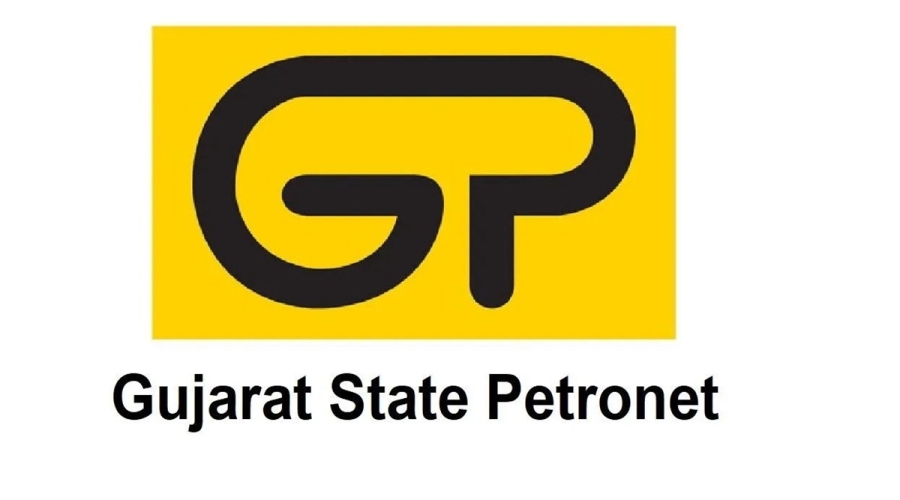

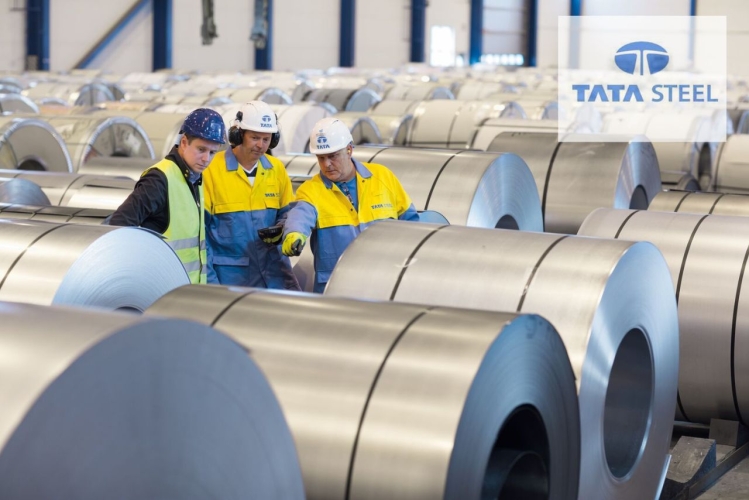

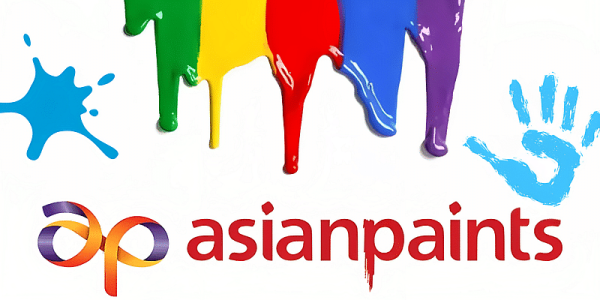
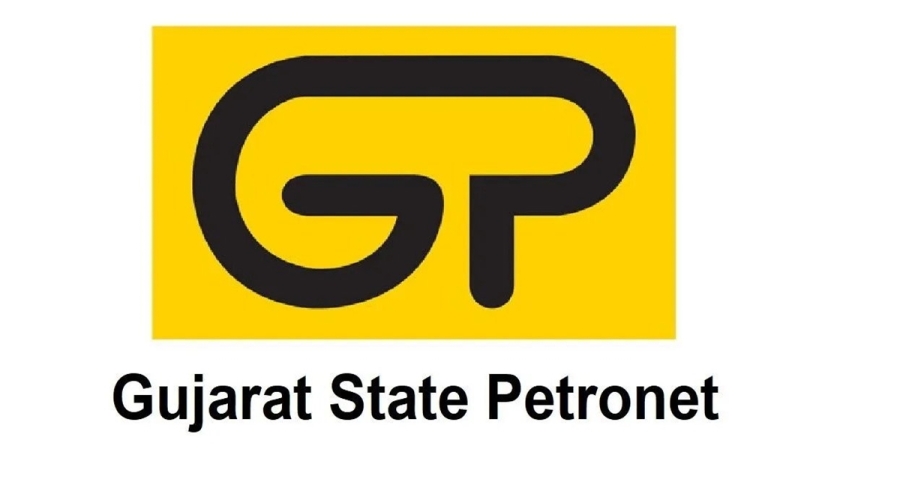
Apr 01 2024, 07:22
- Whatsapp
- Facebook
- Linkedin
- Google Plus
0